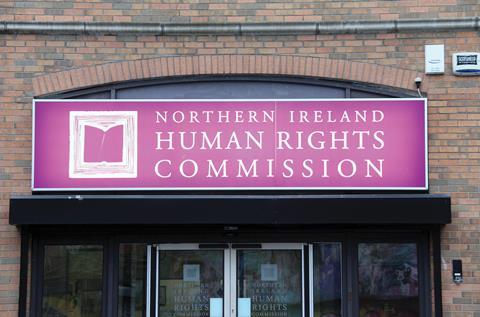Individuals who go to court without a lawyer can jeopardise their right to a fair trial.
The disadvantages faced by individuals who go to court without a lawyer can jeopardise their right to a fair trial. This is the finding of a two-year Nuffield Foundation study by Ulster University on litigants in person in the civil and family courts in Northern Ireland, which examined the experiences of individuals who represented themselves in court. The similarities between the Northern Ireland legal system and other legal systems like England and Wales mean that this research applies beyond Northern Ireland.

Under Article 6 of the European Convention on Human Rights individuals are entitled to a fair trial, including the right to participate effectively in court proceedings and the right to equality of arms. The research identified intellectual, practical, emotional and attitudinal barriers faced by LiPs in accessing these rights.
Intellectual barriers are the difficulties litigants have in understanding legal terms and processes, and applying complex legal information to the facts of a case. Practical barriers arise when a litigant struggles to manage the practical demands of their legal proceedings, including knowing what to expect or where to get relevant information. Emotional barriers arise from the anticipation or experience of the legal proceedings that can increase existing (usually negative) emotions. While all litigants may face these barriers, those who go to court without a lawyer also faced attitudinal barriers. Judges, lawyers or court officials automatically adopt a negative attitude towards LiPs and assume they will be difficult to deal with. Attitudinal barriers may also be created by LiPs where they automatically adopt a negative attitude towards these court actors.

The European Court of Human Rights has said that if a case is too complex or the litigant’s ability to self-represent is insufficient, the state is required to provide legal representation for them. Beyond these exceptional circumstances, Article 6 does not require litigants to have legal representation but the state is still required to ensure that the disadvantage faced by LiPs does not amount to unlawful discrimination. The state is therefore required to take action to pre-empt a breach of Article 6.
There are different actions the state can take. As part of the research, a procedural advice clinic was established by the Northern Ireland Human Rights Commission to test if this could improve litigant participation. Procedural advice is neutral advice or information that is intended to inform a person’s decision, think through their options and decide for themselves the best approach to their case. It is different from legal advice which is intended to influence or guide a litigant’s decision by looking at the merits of the case and setting out the pros and cons of different legal positions.
Litigants were very positive about the clinic, and found it helpful to have someone knowledgeable and professional to talk to and who could check their understanding, help them to see their cases differently and develop greater skills to manage their proceedings. They appreciated being taken seriously and listened to, often when they felt isolated and intimidated by the prospect of court. It was described by one litigant as providing ‘a wee bit of empathy and a bit of sympathy’.
There were limitations to the clinic which the research defines as ‘too little’ or ‘too late’. ‘Too late’ in that LiPs felt they would have benefited from the advice much earlier in their proceedings, rather than part-way through their cases. ‘Too little’ in that the remit of the clinic was too limited for some and was not enough to match the advantages of legal representation on the other side.
The two main recommendations from the research are that there is a need for cultural change to ‘normalise’ the presence of LiPs in the court system and embed their perspective in reforms to the court process; and a need for information materials to support litigants, developed through user-focused design principles.
Most of the recommendations do not require ministerial action, and movement towards delivery of the recommendations in Northern Ireland has already begun. At the conference launch for the research, the Department of Justice proposed the creation of an LiP reference group, which it would form part of, along with litigants and other stakeholders. There was strong buy-in from LiPs and lawyers, and work is under way with Ulster University, the Northern Ireland Human Rights Commission and the Department of Justice to develop this proposal to help delivery the necessary reforms.
Gráinne McKeever is a professor at the University of Ulster. The research is available at ulster.ac.uk/litigantsinperson































No comments yet